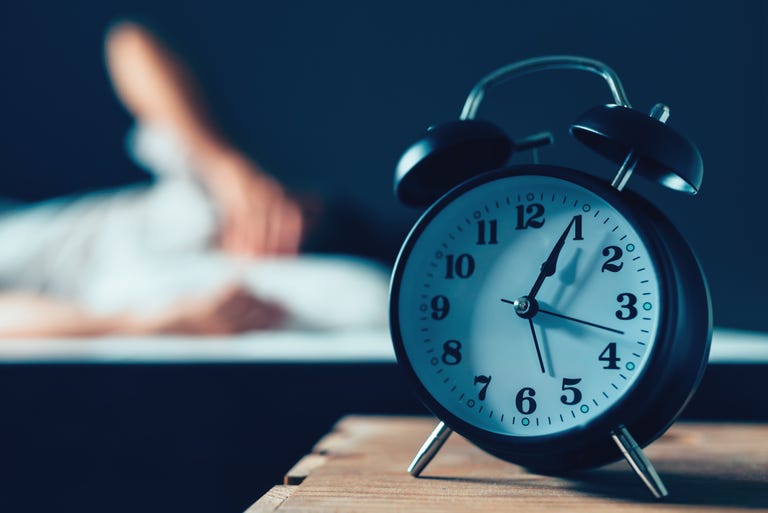Throwing Off Your Body's Biological Clock Could Put You at Risk for Depression
A new study says staying awake all night could be linked to mood disorders.
BY MELISSA MATTHEWS

GETTY IMAGES
- People who were more active at night were at increased risk of depression, according to a new study
- Researchers believe that your internal clock is confused when you are more active at night
- More studies are needed to determine the link between mood disorders and circadian rhythms
Night owls, here's another reason to stop watching Netflix until 2 a.m.: a new study found a link between staying up late and depression.
Every biological process, from eating to sleeping, is controlled by the body's circadian rhythms, or internal clock. These rhythms are regulated by the environment, so when it's sunny, our bodies yearn to be awake; when it's dark, our rhythms tell us it's time for bed.
Irregular circadian rhythms confuse the body, and they've been linked to weight gain and diabetes. Now, a new study published in The Lancet Psychiatry says disrupting your natural clock could also increase your risk of mood disorders by up to 10 percent.
Researchers from the University of Glasgow studied 91,105 adults between 37 and 73 years old using activity monitors to determine when they were most active. People who were more active late at night, compared to during the day, were considered to have disrupted circadian rhythms.
They found that people who were more active at night were between 6 and 10 percent more likely to be diagnosed with a mood disorder, like depression or bipolar disorder. Scientists also discovered that night owls tended to be lonelier and more unhappy.
It's important to note that the research is not saying that staying up all night causes depression — only that the two are linked. But Psychiatrist Daniel Smith, the study's co-author, believes scientists should pay more attention to the link between circadian rhythms and depression.
"The study tells us the body clock is really important for mood disorders and should be given greater priority in research and in way we organize societies," he told the BBC.
While we still can't say for certain that being a night person is bad for your mental health, there is plenty of research about the benefits of being a morning person. Early risers eat a more balanced breakfast, are less likely to procrastinate, and are more successful at work — all of which are good reasons to go to bed early tonight.
No comments:
Post a Comment